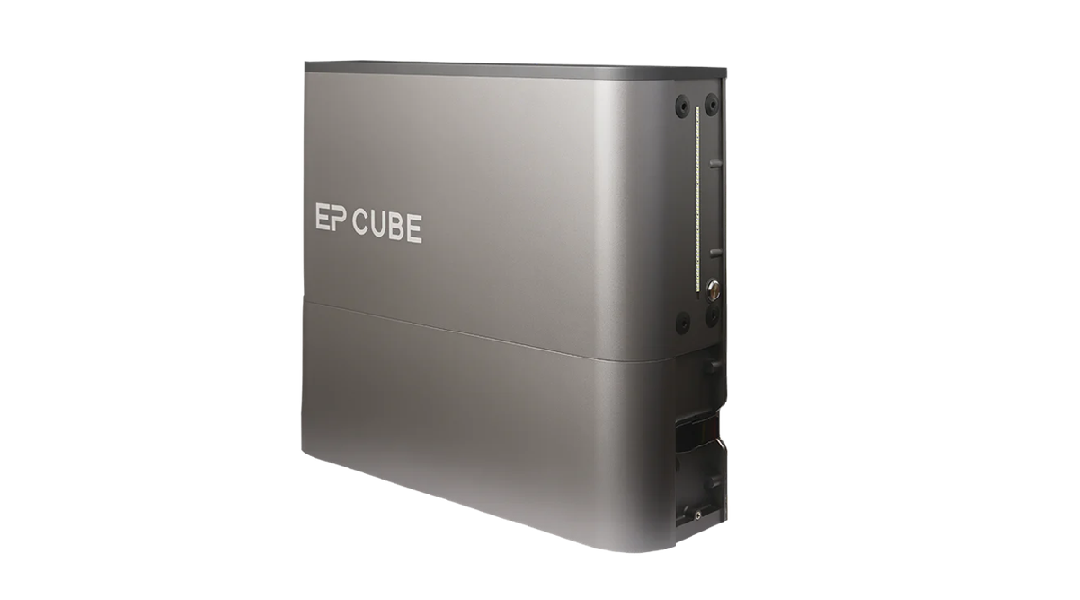A hybrid inverter is a relatively new technology in the solar power industry, designed to offer the benefits of a conventional inverter combined with the flexibility of a battery inverter. As such, it is a great option for homeowners who want to install a solar system with an energy storage system in their homes.
At Portable Sun, you’ll find a wide range of hybrid inverter types. To know how to choose the best one for you, you first need to understand what a hybrid inverter is and how it works.
So, in this article, we’ll break down everything you should know about this type of inverter to help you make the best decision when purchasing one for your home.
What Is a Hybrid Inverter?
A hybrid inverter, often called a multimode inverter, serves as a critical component in a solar power system. It combines the functionalities of a traditional grid inverter and a battery charger, enabling the use, storage, or return of solar energy to the electrical grid.
This dual functionality provides greater flexibility and control over how and when solar energy is used, making it a key technology in the growing adoption of renewable energy sources.
The hybrid inverter converts direct current (DC) into alternating current (AC) using solar power generation or other sources. It can store alternating current in batteries. Hybrid inverters are known for their easy installation and ability to provide off-grid electricity.
Inverter vs. Hybrid Inverter
The main difference between hybrid inverters vs. traditional inverters is their functionality. Normal inverters are designed to work only with solar panels and cannot be integrated with a battery storage system. They cannot provide backup power during power outages.
Hybrid inverters, on the other hand, are designed to work with both solar panels and battery storage systems. They can work in multiple modes, including online, offline, and hybrid. Moreover, they provide backup power during power outages and can also be used to reduce energy bills by storing excess energy generated by solar panels.
Unlike a simple inverter, a hybrid inverter combines the inverter, battery charger, and charge controller into a portable device.
How Hybrid Inverters Work
The operation of a hybrid solar inverter revolves around the seamless coordination between solar system components, including solar panels, batteries, and the electrical grid. During daytime hours, when there is enough sunlight, the inverter prioritizes the use of photovoltaic (PV) solar energy to meet current energy needs.
Any excess energy produced beyond the current demand is directed to charging the connected batteries.
Conversely, when solar energy production decreases or stops, such as at night or in cloudy weather, the hybrid solar inverter automatically switches to drawing energy from the batteries to ensure continuous and uninterrupted power supply.
So, to sum up, a hybrid inverter features the three following functions:
- Solar power conversion: Converts DC electricity generated by solar panels into usable AC power.
- Battery charging: Allows excess energy to be stored in batteries for later use, improving energy independence.
- Grid connection: Integrates with the grid, supplying power when solar generation is low or electricity demand is high.
Applications of Hybrid Inverters
Hybrid inverters have many different applications as they are versatile and powerful devices combining the functionality of a solar inverter with battery storage. Here are some of the most common applications:
- Solar inverter for home use. Hybrid inverters are a great option for residential solar power systems and homeowners who want to ensure energy independence and minimize reliance on the grid.
- Commercial and business use. Businesses need to ensure the uninterrupted operation of their industrial processes, which can easily be achieved with a hybrid inverter.
- Off-grid and remote locations. Hybrid inverters can provide a reliable source of electricity by integrating solar panels and batteries, while they also support backup generators, which is essential in off-grid areas.
- On-grid solar systems with hybrid inverter with storage. These types of inverters allow users to lower their electricity bills by using stored excess energy.
Types of Hybrid Inverters
To choose the best hybrid inverter for your needs, it is important that you learn about different types of hybrid inverters first. So, here are the three main hybrid inverter types:
Grid-Tied Hybrid Inverters
Grid-tied hybrid inverters are an excellent solution for integrating renewable energy sources into existing utility networks because they can work with conventional power sources to maximize overall performance.
These well-designed inverters have built-in coordination mechanisms that synchronize their electricity flow with that of the larger grid network, enabling them to operate at peak efficiency levels regardless of supply fluctuations or interruptions.
Off-Grid Hybrid Inverters
Off-grid hybrid inverters are designed for independent power systems that are not connected to the power grid. Businesses can use this hybrid inverter to build a self-sustaining energy system as they store charge in a battery storage system. The stored energy is then transferred to the inverter whenever there is a power shortage, especially at night.
Spare Hybrid Converters
As the name suggests, the backup hybrid inverter is designed to supply backup power during power grid outages. These inverters are often integrated into grid-connected solar energy systems and work with energy storage inverter devices, such as batteries.
5 Top Advantages of Using Hybrid Inverters
Hybrid solar inverters offer many advantages over traditional inverters, and the most important ones include:
#1. Energy Independence
A hybrid inverter enables homes and businesses to become more energy-independent. By installing a battery storage system, excess energy produced by the solar panels can be stored for use during periods of low solar production or power outages.
#2. Cost Savings
With a hybrid inverter, homes and businesses can significantly reduce their energy bills by relying on solar power during the day and battery storage at night or during periods of low solar production.
#3. Increased Efficiency
Hybrid inverters have a higher efficiency rating than traditional inverters. They can achieve efficiencies of up to 97%, which means that more of the energy generated by solar panels is used to power devices and appliances in the home or business.
#4. Increased Flexibility
Hybrid solar inverters can be used with different types of solar panels, so you can choose the panels that best suit your needs. With a hybrid inverter, you are not restricted to using just one kind of panel.
They also work with different types of battery storage systems, which makes them a great option for people who want to expand their solar power system at some point.
#5. Simple Installation
Hybrid solar systems are easy to install and don't require special wiring or equipment. This makes them a great option for homeowners who want to use solar energy without hiring professionals for installation.
Choosing the Right Hybrid Inverter for Your Needs
Choosing the right hybrid inverter for your needs requires considering several key factors. It is also critical to remember that, despite the potentially high initial cost, such an inverter has numerous benefits and is ultimately a wise investment.
That’s because hybrid inverters store energy more efficiently and are a more reliable power source.
So, here are the crucial factors you should consider when buying a hybrid inverter:
#1. System Size
It is essential that you calculate your solar panel wattage and peak energy consumption and have a precise insight into your energy demands so that you can select the inverter that aligns with the energy demand of your system.
You should also consider whether you might be expanding your solar system in the future and choose an inverter with additional capacity if necessary.
#2. Battery Compatibility
There are many types of solar batteries, each with a set of unique characteristics. Some inverters are designed for use with specific battery types, so it is essential to ensure compatibility between the two. By making sure the inverter supports the type of batteries you plan to use, you are also ensuring charging efficiency and long battery life.
#3. Solar Inverter Efficiency Ratings
Narrow your choice to hybrid inverter models with efficiency ratings above 95%. The more efficient the inverter is, the more efficiently it minimizes energy loss during conversion. A high-efficiency hybrid inverter makes your solar power system more cost-effective in the long run because it allows you to use a bigger proportion of the generated solar power.
#4. Brand Reputation
Going for a reliable, reputable brand of solar products is a wise decision because trusted brands offer extensive warranties, which means more security in case of any kind of failure or malfunction of the hybrid inverter.
So, check customer reviews, compare warranty terms of different brands, and ask for professional advice if necessary. Contact our solar experts at Portable Sun if you have any questions or concerns—they are always available to provide you with objective insights and quality tips that are tailored to your specific needs.
Get the Best Hybrid Inverter at Portable Sun
Backed by reliable brands and comprehensive warranties, the hybrid inverter selection at Portable Sun provides maximum efficiency in terms of performance and safety. Our careful selection of the most sophisticated hybrid inverters guarantees seamless battery compatibility and optimal performance, ensuring a return on your investment.
Explore Our Best-Selling Hybrid Inverters—Optimized for Efficiency and Savings
Final Thoughts
So, we hope that you now understand what a hybrid inverter is and what its advantages and differences are compared to a simple inverter.
Hybrid solar inverters represent a revolutionary advance in renewable energy technology, offering a versatile and efficient solution for harnessing solar energy and increasing energy resilience.
Through the seamless integration of solar panels, battery storage, and advanced inverter technology, hybrid systems allow users to optimize their own solar energy consumption, reduce grid dependency, and minimize environmental impact.
What is a Hybrid Inverter FAQ
#1. Can a hybrid inverter run without a solar battery?
Yes, a hybrid inverter can operate without a solar battery because it can directly convert solar power for instant use and it can also export excess energy to the grid. Nevertheless, incorporating solar battery storage with your solar power system further enhances its performance and efficiency.
#2. What is the difference between a normal inverter and a hybrid inverter?
The difference between a normal inverter and a hybrid inverter is that the normal inverter’s role is to convert DC electricity from batteries to AC for use. In contrast, a hybrid inverter manages both solar energy and battery storage. Therefore, hybrid inverters offer more versatile energy management. Plus, they also integrate grid power.
#3. Can a hybrid inverter work during a power outage?
Yes, a hybrid inverter can work during a power outage. Many models of hybrid inverters with battery backup can provide power supply during outages. They achieve this by switching to stored battery energy, ensuring an uninterrupted power supply.
#4. What is a hybrid inverter in a solar system?
A hybrid inverter in a solar system converts DC into AC using solar PV power generation or other sources. It can also store AC in battery storage.
#5. What is a hybrid inverter with a battery?
A hybrid inverter with a battery integrates energy conversion and storage within a single system. It manages solar power, charges the battery with excess energy, and provides electricity for use during lack of sunlight, peak demand, or grid outages.
Disclaimer: The content on Portable Sun is for informational purposes only. Electrical work can be dangerous—always consult a qualified professional. We are not liable for any injuries, damages, or losses from installation or use. Always follow local regulations and safety guidelines when handling electrical components.

